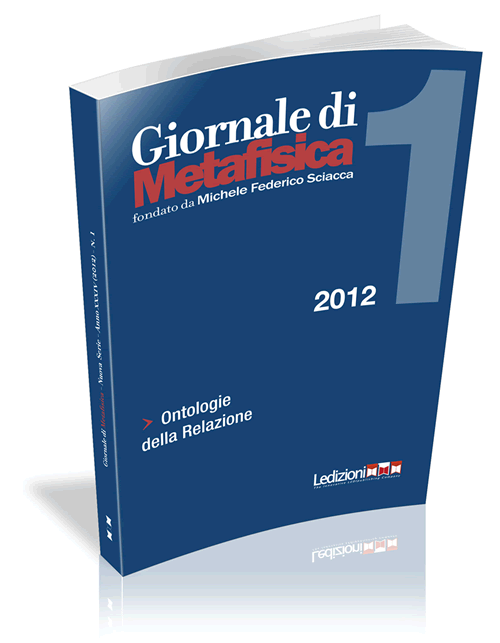Abstract
The parable of modern thought, aiming to delineate the beginning and the foundation of knowledge, in the end has to resolve into the blending of a double primitiveness: on one side the methodological primitiveness of cogito, on the other and together the metaphysical a priori, always functioning, of an unconditional, of an infinite principle, what constitutes the foundation and the rule of the cogito.The reality and transcendence of this principle can be clarified starting from an attentive phenomenology of the existing:
1. Starting from the negative character of every ontology (determinatio est negatio) one has to access a constitutive relationality of being. In this sense one has to reprise Hegel’s formula according to which every reality is for itself in that it is for another and is for another in that it is for-itself. Besides, relationality that safeguards the reciprocal connection and the difference between entity and entity cannot be conceived without supposing an identity of being, always subtended and always functioning: an original and originating immanence, a radical logos that constitutes and goes beyond the interlacement of entities, without resolving into the sum of their beings.
2. The question then arises of whether this immanence that is always other than the entity has to be seen as an absolutely immanent transcendence or as a metaphysical transcendence. A correct phenomenological analysis of the existing leads us to reflect on the datum of a recurrent irrationality in human experience (error, evil): an irrationality which, excepting contradiction, is not referable to the logos first affirmed. In this perspective one has to deduce the assertion of a metaphysical transcendence, of a constitutive difference of the entity with respect to being.3.
A conclusive section of the essay aims to delineate the conciliation of this difference, which on one side can be found along the pathway of ethical exercise and on the other side can be prophesied through poetic prefiguration.
